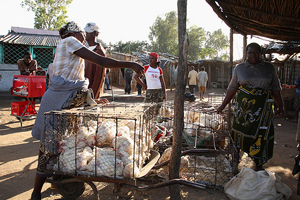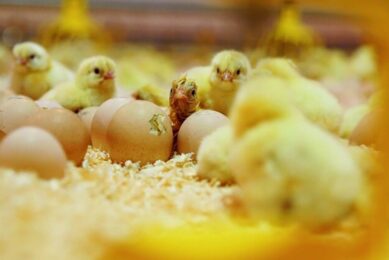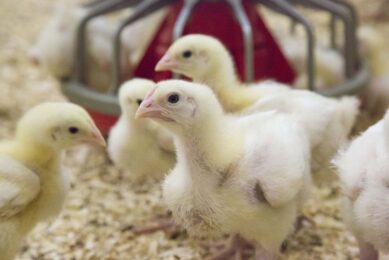US program develops heat-tolerant chickens for Africa

A new program that will identify genes crucial for breeding chickens that can tolerate hot climates and resist infectious diseases — specifically the devastating Newcastle disease — has been launched under the leadership of the University of California, Davis.
The project is particularly important for Africa, where infectious diseases annually cause approximately 750 million poultry deaths. Newcastle disease, a global threat to food security, first appeared in 1950 in the United States. In 2002 it resulted in the death of 4 million birds at more than 2,600 California locations and cost $160 million to eradicate.
The new effort, called the Feed the Future Innovation Lab for Genomics to Improve Poultry, aims to dramatically increase chicken production among Africa’s rural households and small farms, advancing food security, human nutrition and personal livelihoods. The innovation lab recently was established with a $6 million grant from the US Agency for International Development as part of Feed the Future, the US government’s global hunger and food security initiative.
Huaijun Zhou, principal investigator for the program and an associate professor of animal science in the College of Agricultural and Environmental Sciences at UC Davis, noted that disease resistance is one of the most economically important traits for poultry production but also challenging to achieve through genetic selection and traditional breeding alone.
“We are thrilled by the opportunity to apply cutting-edge technology and advanced genomics to solve this problem in poor, developing countries,” said Zhou, whose research focuses on the relationship between genetics and the immune system.
“Developing a chicken that can survive Newcastle disease outbreaks is critical to increase poultry, meat and egg production in Africa and in other regions of the world,” said David Bunn, director of the new innovation lab. “Increasing the production of chickens and eggs can have a dramatic impact on the livelihoods of poor rural communities.”
Homestead and small-scale poultry production is considered to have tremendous potential for alleviating malnutrition and poverty in Africa’s climate-stressed rural communities. Improving the productivity of such poultry operations also promises to improve incomes and nourishment for women and children, who typically raise poultry for both income and food in Africa.
Join 31,000+ subscribers
Subscribe to our newsletter to stay updated about all the need-to-know content in the poultry sector, three times a week. Beheer
Beheer








 WP Admin
WP Admin  Bewerk bericht
Bewerk bericht